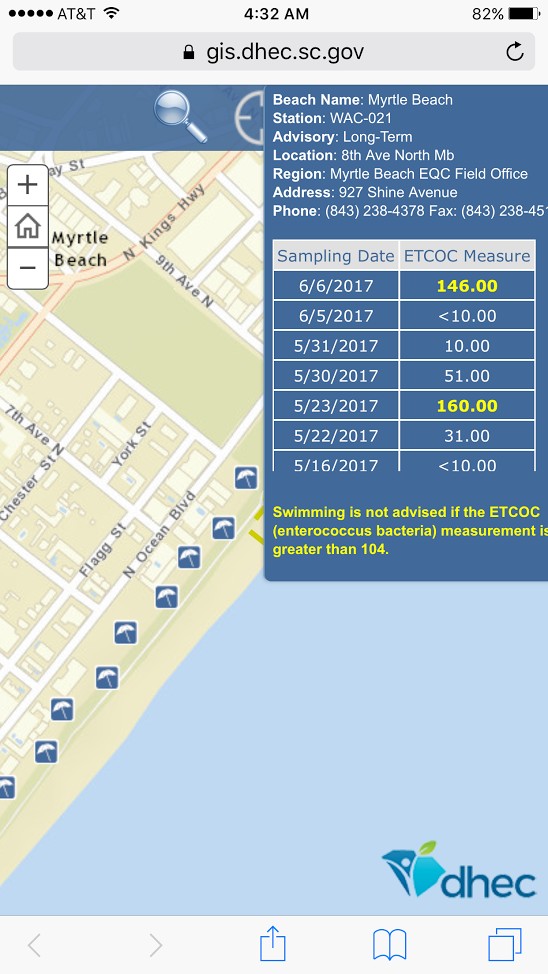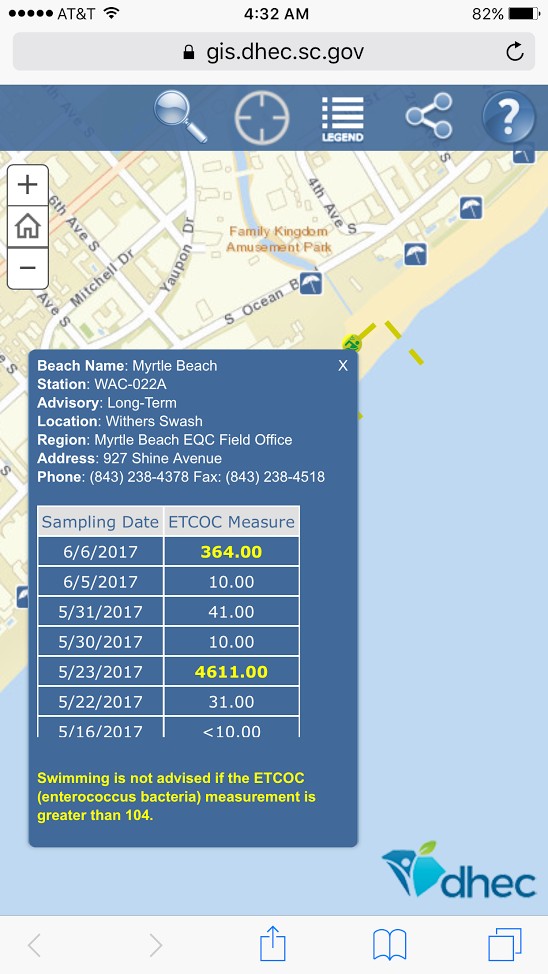Three days of heavy rains this week, produced expected unhealthy bacteria spikes in ocean water at two area drainage locations in downtown Myrtle Beach.
As the Carolina Country Music Festival begins today, here are the troubled swimming areas tourists should avoid.
8th Avenue North in front of this week’s Country Music Festival Unsafe Swimming Reading.
3rd Avenue South Family Kingdom. 3 times higher than safe swimming
The EPA warns tourists: The most common illnesses associated with swimming in water polluted by high bacteria are gastroenteritis and skin cellulitis. Gastroenteritis occurs in a variety of forms that can have one or more of the following symptoms: nausea, vomiting, stomachache, diarrhea, headache or fever. Skin cellulitis is a bacterial infection that often shows up as a rash. Cellulitis can spread rapidly. Cellulitis is a skin infection caused by staphylococcus or streptococcus bacteria and can require lengthy treatment for young children or people with diabetes or compromised immune systems.
Six of the eight infected areas had normal readings this week. To see the locations of all eight infected areas, visit the official Department of Health and Environmental Control site here.
Bacteria in ocean waters is a major concern for beachgoers. The bacteria can cause illness and even death in some cases. Testing of the ocean water to see if it has bacteria is not an easy task. It requires expensive equipment, a lot of time and a lot of money.
It is important to know the risks of swimming in ocean waters. The beach bacteria testing is a natural and necessary precautionary measure to take when visiting any beach.
The bacteria in ocean waters can be tested by using the Enterococcus faecalis (E. faecalis) test, which tests for human waste-related bacteria. This test can also determine if there are any high levels of E. coli, which can indicate an increased risk of infection with other illnesses such as Hepatitis A and Shigella.



